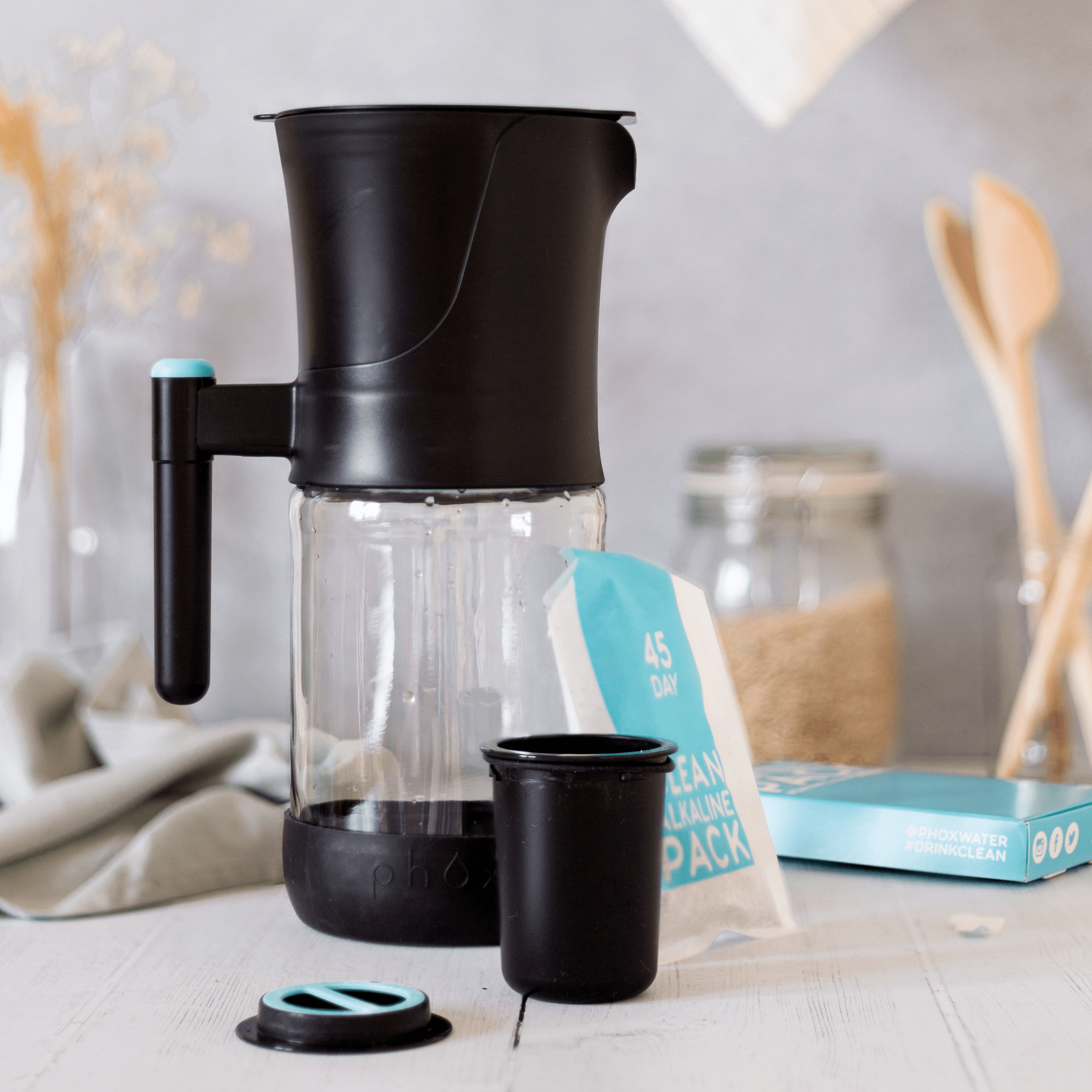The Glass Water Filter By Phox
When we put together our sustainable water filters, nothing is accidental. From materials, to where we source our supplies, it's all to be as sustainable as possible. Here's the thinking behind our Phox glass water filter jug...
Recyclability
For many Phox customers, it's a conscious choice and one where we don't have to bore you with a reminder that single-use plastic is not a long-term viable option for a planet rapidly warming through climate change. Globally, only around 9% of plastic waste is recycled, with millions of tonnes dumped in landfill every year.

While it's no secret glass is the heavier option, it was a very conscious and important decision for us in terms of sustainability.
Our Phox glass water filter jug is not only built to last, but the container is made from a material that can be infinitely recycled.

No option for our filter jug material is immune from scrutiny, so we felt it was vital to understand all our choices and their pros and cons. From a consumer point of view, it was useful to note the Understanding Packaging scorecard, produced by the Food Packaging Forum.
This study found glass was ranked as the best material for water bottles and containers, compared with plastic, aluminium or HDPE. The scorecard considers climate impact, water usage, sourcing of raw materials, life span and the potential for (harmful) chemical output.
Health and Wellbeing
From a production point of view, single-use plastic bottles are so much more prominent and appealing to companies because of their lower cost, lightness and ability to mass-produce. There is a school of thought that says holding onto a purchased plastic bottle and refilling with water is a way to do your bit for the planet. But there's a problem there too...
Plastic water bottles are made from many different chemicals. Many of these chemicals have the potential to leach into your water, which in turn means the consumer ingests them.

Glass on the other hand does not contain chemicals which leach into your beverage. Glass is dishwasher safe, easier to sterilise and usually made from natural resources like sand.
Taste
Glass doesn't hold flavour, as opposed to plastic. The experience of drinking from glass is unhindered and true. Think of the most expensive beverages on the market, they are all sold in glass containers.
Glass has a thermal conductivity of 0.8W/(m.K), more than ten times that of plastic. Or in layman's terms, glass bottles keep your drink colder. In the height of summer, we know what we'd prefer.
We were very conscious taste also depends on the water in your area. Which is why we launched both the clean and alkaline packs. While both remove nasties and (if we do say so ourselves) taste great, we wanted to give people the option to choose the clean option to soften the water if they lived in a hard water area. Or, to go for the alkaline pack, adding in magnesium and sodium for better hydration.
Other Options for On the Go...
When looking at lighter options to combine the sustainable aspect of our glass water filter jugs and a sustainable option for daily use, our bottles were given the same consideration. Made of stainless steel, double-wall insulated and containing a bamboo lid.

Conclusion
The decision to make the bulk of our Phox water filters from glass was both a conscious decision and one that was paramount towards our overall sustainability mission statement. We are working towards filter jug options which are more kitchen-friendly and hope to bring you a filter which fits in your fridge in time for the warmer weather. But when it came to combining health, lifestyle and environmentally conscious, glass really did come top of the class.


